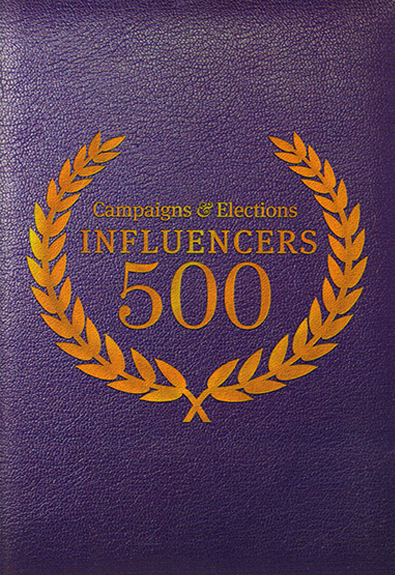By: Alexander Burns and Jonathan Martin
GREENVILLE, S.C. — In the geographic heart of the Republican Party, the contest for the allegiance of Southern conservatives in the 2012 race is as wide open as ever.
Of all the prizes still up for grabs in the GOP presidential primary, few are as desirable as the support of the South. Republican presidential nominations have traditionally been forged here — in South Carolina, especially — and any successful challenger to Mitt Romney would most likely have to dominate among heavily conservative, evangelical Southern voters.
Yet the only candidate this cycle who seemed to have a shot at locking down the South, Rick Perry, has stumbled badly. Newt Gingrich, the anti-Romney favorite du jour, is polling well across the region, but politicos question whether the former Georgia congressman has what it takes to dominate in Dixie.
So as the Republican Party looks ahead at the possibility of a long primary fight, there’s a real possibility that none of the finalists will have any distinctive appeal in the core region of the GOP.
“We’re a little more split up this time,” said Henry Barbour, the Republican National Committeeman for Mississippi and a Perry supporter. “I don’t think there’s a natural favorite son of the South in this primary.”
Said Barbour: “Gov. Perry looked really strong down here early on, now unfortunately that’s opened back up … Can Gov. Perry come back? I think he can.”
John Ryder, the longtime RNC member from Tennessee, agreed on the big picture: “There is nobody who is dominant in this region.”
“That makes the contest even more open because the dominant region for the party doesn’t have a dominant candidate,” explained Ryder, who said of Gingrich: “Republican women are the real backbone of the party in the South, and they fundamentally mistrust Newt because of his personal life.”
Gingrich — like Perry before him — has risen to the top of the Republican primary polls in part because of the support of Southern voters. A Gallup tracking poll last week showed that Gingrich had a huge, 27-point lead over Romney in the South, compared with a 14-point lead in the Midwest, a 7-point lead in the West and a negligible 1-point advantage in the East.
At a campaign stop in Greenville Thursday, Gingrich told a crowd that South Carolina was the key to victory for him: “I believe if I win in South Carolina, that in fact I will be the nominee.”
But Gingrich is a decidedly imperfect standard-bearer for Southern conservatives and not only because of his marital history. A Pennsylvania native who lives in upscale suburban Washington, Gingrich is better known to most Republicans as an author and national television personality at this point than as a former Georgia politician. As a Catholic convert, he doesn’t necessarily have the personal affinity with evangelicals that Mike Huckabee or George W. Bush did.
To the extent that Gingrich is resonating in the South, political veterans say it has more to do with the fact that he has claimed — for the moment — the anti-Romney mantle than that he has any special connection with Southerners.
“I think that Gov. Perry, actually, has more of a Southern connection because of his mannerisms, because of his Southern accent. The speaker tends to grab people more on the content of his message,” said former South Carolina GOP Chairwoman Karen Floyd.
“Is he a Southerner? He’s from Georgia, so I guess he’s a Southerner,” said former South Carolina House Speaker David Wilkins, a Perry supporter. “He’s probably perceived to be more national than if he were a sitting Southern governor, the way Perry is. He’s been in Washington, D.C., for a long time.”
Ralph Reed, the longtime Southern Republican strategist who heads the Faith and Freedom Coalition, credited Gingrich with understanding “the syntax and the rhythm, the background music of Southern politics.”
But Reed cautioned that in a fluid race, even the Michigan-born, Massachusetts-based Romney could win a handful of Southern states, since no other candidate has cornered the market on culturally conservative Southern voters.
“I think it’s a mistake to assume that Romney can’t win a Southern state,” said Reed, a former Georgia Republican Party chairman. “I think a place like South Carolina is tough. Georgia will be tough. But you know, a place like Florida, Texas, maybe even Tennessee is more doable.”
Thanks to the GOP’s emphasis on proportional allocation of delegates, and the presence of many non-Southern states early in the calendar, Reed also questioned whether being a Southern regional candidate is as desirable as it once was.
“Given the compression of the calendar and the proportional awarding of delegates, I think there’s less of a premium today on being a regional candidate,” he said. “Super Tuesday, as it was originally conceived, no longer really exists, because all the states have tried to leapfrog each other.”
Still, for the throng of candidates jockeying for position against Romney, there’s no swath of the political battlefield that’s quite as welcoming as the South, where Romney’s impressive national political organization will be hard-pressed to overcome resistance to his more moderate governing record, his remote personal demeanor and his Mormon faith.
To Romney supporters, there’s no question that the South is challenging territory. Their candidate’s support among Southerners has been dismal: In an August Gallup Poll, Romney took 12 percent of Southern voters to Perry’s 39 percent. Now, Romney is at 15 percent to Gingrich’s 42 percent, while Perry is still a close third at 13 percent.
That hasn’t prevented Romney from making inroads with Southern lawmakers and the region’s donor class, Arkansas Rep. and Romney endorser Tim Griffin pointed out.
“If you look at what Gov. Romney’s been able to do across the South in the last month and a half — the Diane Blacks, the Cobles, McHenrys, the Foxxes — he’s made major inroads,” Griffin said, listing GOP members of Congress who have backed Romney.
Mike Hubbard, the Romney-endorsing Alabama House speaker, said Romney could win over voters as the candidate “who can beat Obama.” His caution about Gingrich: “People, and I’m one of them, worry about him in a general election.”
Former Mississippi Sen. Trent Lott, another Romney supporter, acknowledged that it’s still a “relatively tough sell for Romney” with rank-and-file Southern voters for a list of reasons.
“He grew up in Michigan and has lived in Massachusetts all these years. To be perfectly honest, religion is still a factor in the South. That was one of the reasons we liked Huckabee. He was Baptist and had a Southern style of speaking,” said Lott, who also recalled that Romney had successfully worked the room during recent campaign stops in Mississippi: “The ladies loved him.”
If Gingrich continues to gather steam, he may end up as the permanent Southern favorite despite lacking the cultural identifiers that aided Huckabee in 2008, allowing the Arkansan to win five states on Super Tuesday after a string of losses. Perry backers hope he’ll be able to leverage his Southern-ness to pull himself back into contention next month.
Yet as voting draws nearer, it seems less and less likely that anyone in the 2012 field will fully occupy the space Huckabee seized four years ago — much less the role of George W. Bush in 2000.
“Newt obviously has regional appeal in the South, given his time as speaker and a congressman from Georgia, but I don’t think you can classify him as a Southern candidate by any means,” said former Huckabee campaign manager Chip Saltsman. “Especially in a place like South Carolina, regional strength matters.”
The name that surfaces again and again with Southern Republicans, who look with some perplexity at the lack of regional flair in the current field of candidates, is Haley Barbour’s.
If the Mississippi governor had moved forward with a 2012 bid, Republicans say, he could have been in a position to woo Southern voters aggressively and head into a 50-state primary fight with a commanding home-field advantage.
“Haley might have been the one who had Southern support,” said Lott. “I don’t think anybody really has a hold on it.”
Former Tennessee Rep. Zach Wamp, who helped urge Fred Thompson into the 2008 race, suggested that Barbour could have united the Southern political class in a way Gingrich hasn’t — and probably can’t.
“I think a lot of average Republicans in Tennessee are going to vote for Newt Gingrich,” Wamp said. “But you don’t even see the entire Georgia delegation standing with him. It would have been very different if Haley Barbour had been the guy.”
http://www.politico.com/news/stories/1211/70327.html

